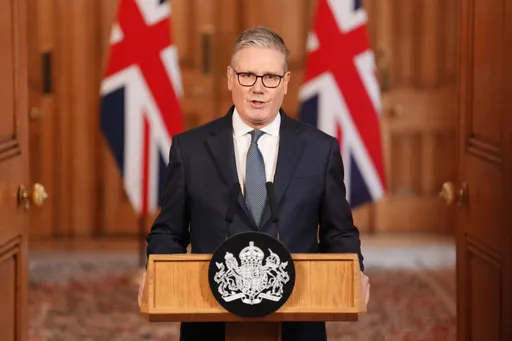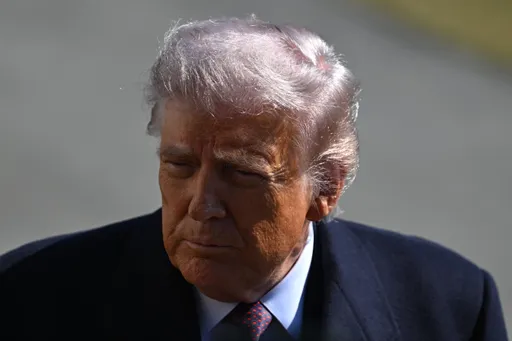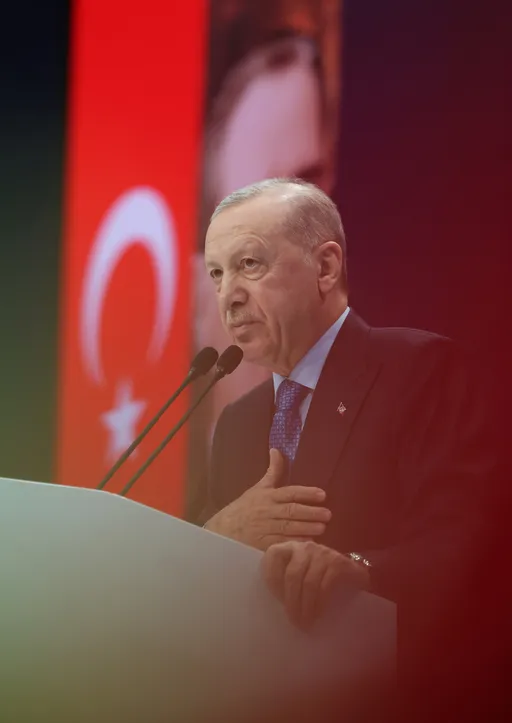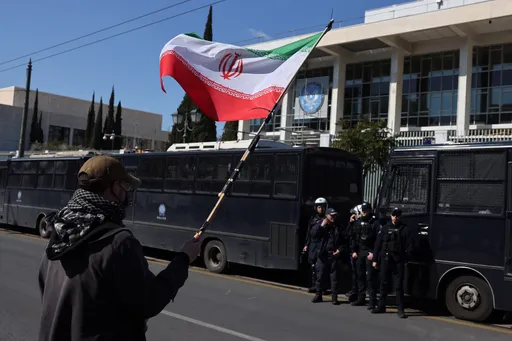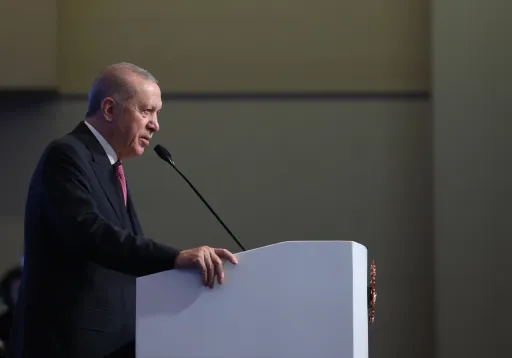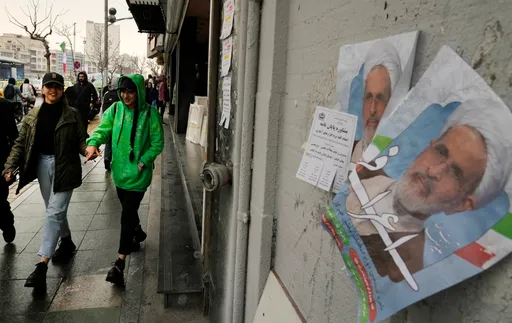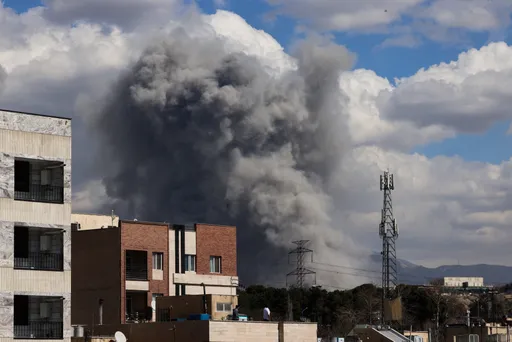The Srebrenica genocide of 1995, during which over 8,000 Bosnian Muslim men and boys were killed, was the worst atrocity on European soil since the Second World War. This massacre occurred in the midst of the systematic ethnic cleansing of Bosniak Muslims in the 1992-1995 Bosnian war. A quarter of a century later, Almasa Salihovic and Emir Suljagic, survivors of Srebrenica, along with Safet Vukalic, a survivor of the 1992 Prijedor massacre, believe the lessons of this tragic event are being ignored as open genocide denial from the Bosnian Serb leadership becomes more brazen and nationalist. This, also, at a time when far-right political discourse becomes normalised across Europe.
Almasa was just 8 years old when she, her mother and siblings along with over 20,000 civilians, were forcibly expelled from Srebrenica. Her 18-year-old brother Abdullah was caught during a failed escape attempt and was murdered. Only 30 percent of his remains were found, subsequently buried over a decade later in 2008. In the light of far-right terrorists worldwide using Bosnia as inspiration for the persecution of Muslims, Almasa says her responsibility is not just in the fighting of the government’s genocide denial, but is in the vanguard of a global struggle to speak about Srebrenica in the same way as the Holocaust is remembered. The perpetrator behind last year’s massacre in a Mosque in Christchurch, sang along to Serbian nationalist songs glorifying those behind Srebrenica - people such as Ratko Mladic and Radovan Karadzic - as he live-streamed the murders of 51 worshippers. The white supremacist Norwegian terrorist, Anders Brevik, mentioned Bosnia 300 times in his manifesto.
Whilst Europe and the UK may be far from seeing another Srebrenica-like scenario, Dunja Mijatovic, the current Council of Europe Commissioner for Human Rights from Bosnia and Herzegovina, says it serves as a cautionary tale of what happens when a European commitment towards diversity and multiculturalism wanes. Post World War II, Europe was supposedly built on the foundation of ‘never again’ repeating the horrors of the Nazi Holocaust or the nationalism which produced it. Yet Srebrenica occurred in the heart of Europe and is within our living memory. A particularly important part of this cautionary tale is the role the media played in demonising minorities.
Safet Vukalic, a teenager at the time of the 1992 Prijedor massacre, remembers only too well the impact it had. He witnessed how Bosnian Serb and Serbian authorities, in the lead up to systematic slaughter, orchestrated a mass media campaign that drip-fed propaganda painting Bosniak Muslims as killers and as an existential threat to Serb people. Safet recounted how he would hear propaganda such as Muslim doctors mass sterilising Serbs, Muslims having kill lists, and Bosniak Muslims being othered as ‘Turks’.
Official government media also played a crucial role in dehumanising Tutsis and mobilising ordinary Hutus to engage in the Rwandan Genocide. In Rwanda, authorities sent machetes and other weapons to Hutu households to kill their Tutsi neighbours, Safet remembers that Bosnian Serb authorities sent guns to every Serb household in his part of Bosnia. Emir Suljagic was keen to emphasise how Kofi Annan, the then UN head of peacekeeping operations, and the international community failed both Bosnia and Rwanda at the same point of history.
Armed with this knowledge of how othering often precedes mass killing, Safet has become more worried about the position of Muslims in the United Kingdom, where he has lived since escaping Bosnia in 1993. Islamophobia proliferates in the UK, particularly in the wake of the Brexit vote. A few years ago The Sun newspaper in the UK falsely reported that one in five Muslims supported ISIS. This came as hate crime has appeared to double in the UK over the preceding 5 years. During the coronavirus crisis, elements of the right-wing press manufactured fears of Muslims congregating in mosques and community centres during Ramadan, risking viral transmission.
Further afield in India, social and government media channels have held the country’s 200 million Muslims responsible for spreading coronavirus, which has manifested in an upsurge of violence and hate crimes against Indian Muslims. There are increasing calls for social media giants like Facebook, Twitter, WhatsApp and others to monitor and take action to stop the proliferation of racist messaging online and for mainstream politicians to be held to account. Anti-Muslim hate crimes in the UK rose by 375 percent after the current UK Prime Minister Boris Johnson described Muslim women with face coverings as ‘’letterboxes’’ in 2018. Whilst Boris Johnson’s comments are not on a par with the nationalist rhetoric of Serb leaders such as Slobodan Milosevic or Radovan Karadzic during the Bosnian war, it shows how those in power have a responsibility to use their platforms wisely.
All three survivors I spoke to reflected on the insidious nature of fixating on the assimilation of Muslims into ‘European values’. The Bosnian war, like the Holocaust before it, tragically demonstrated the danger of this narrative. Much as the highly-integrated German Jewish communities were not spared from the Nazi extermination campaigns, similarly nativised Bosnian Muslims were not spared the onslaught of genocide.
The survivors all emphasised how well integrated Bosnian Muslims were with their Serb and Croat neighbours, wearing the same clothes, eating the same food, in many cases living the same secular lifestyle to the point that Emir argues they were losing their religious identity. He argues European and Western identity has for centuries defined itself in its binary opposition to Islam and Jewry.
This historic antagonism bore bitter fruit - including the Crusades, the Spanish Reconquista, the Holocaust and of course the Bosnian war. Emir shares the view of Bill Clinton, the American president at the time of the Bosnian war, that European leaders were prejudiced against Bosnia due to its majority Muslim population. According to the Clinton Tapes:
'European allies constantly blocked proposals to adjust or remove the arms embargo imposed on Bosnia because "an independent Bosnia would be 'unnatural' as the only Muslim nation in Europe”....Clinton said President Francois Mitterrand of France had been especially blunt in saying that Bosnia did not belong and that British officials spoke of a painful but realistic restoration of Christian Europe'
Within Bosnia, Republika Srpska has institutionalised genocide denial. Emir, Almasa and Safet all strongly believe that this Bosnian Serb entity, which now controls 49% of Bosnian territory, was the construct of a murderous campaign but has since been legitimised by the international community in the wake of the 1995 Dayton peace agreement which ended the war. For all the survivors it is no surprise that Milorad Dodik, the Serb member of the Bosnian presidency, dismisses the Srebrenica Genocide as a “fabricated myth”, nor that a commission to investigate war crimes whitewashes Serb atrocities.
Denial has become so flagrant that Bosnian Serb authorities plan to build a statue of Peter Handke, a controversial Nobel laureate known for his denial of the Srebrenica genocide. Almasa tells me survivors’ pain is compounded by the fact that today’s mayor of Srebrenica denies the genocide, victims are coming face to face with perpetrators in their daily lives and local figures celebrate July 11 as a day of national celebration. In some cases, streets, statues and buildings have been renamed to celebrate Bosnian Serb war criminals and their allies.
Safet, Amir and Almasa’s message to the world is that if genocide denial is not confronted in Bosnia, in the near future, the country could very well see a return to war. With the unfolding State-backed repression of Muslim communities in Myanmar, Kashmir and China, and increasingly normalised antipathy towards Muslims in Europe, reflecting on what happened at Srebrenica 25 years on, has never been so relevant.












